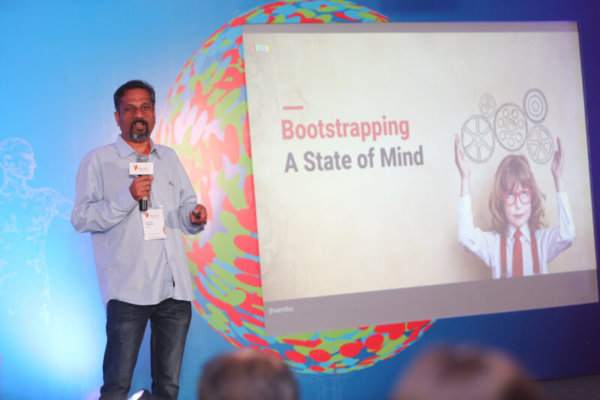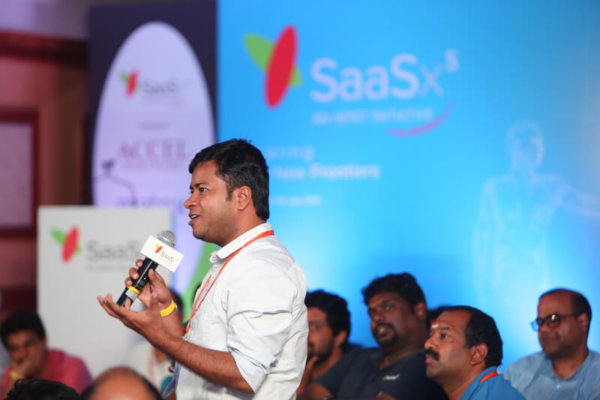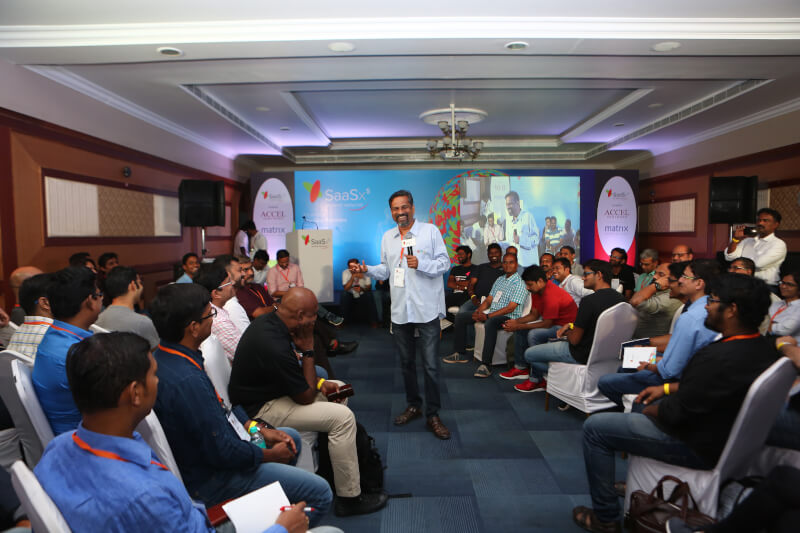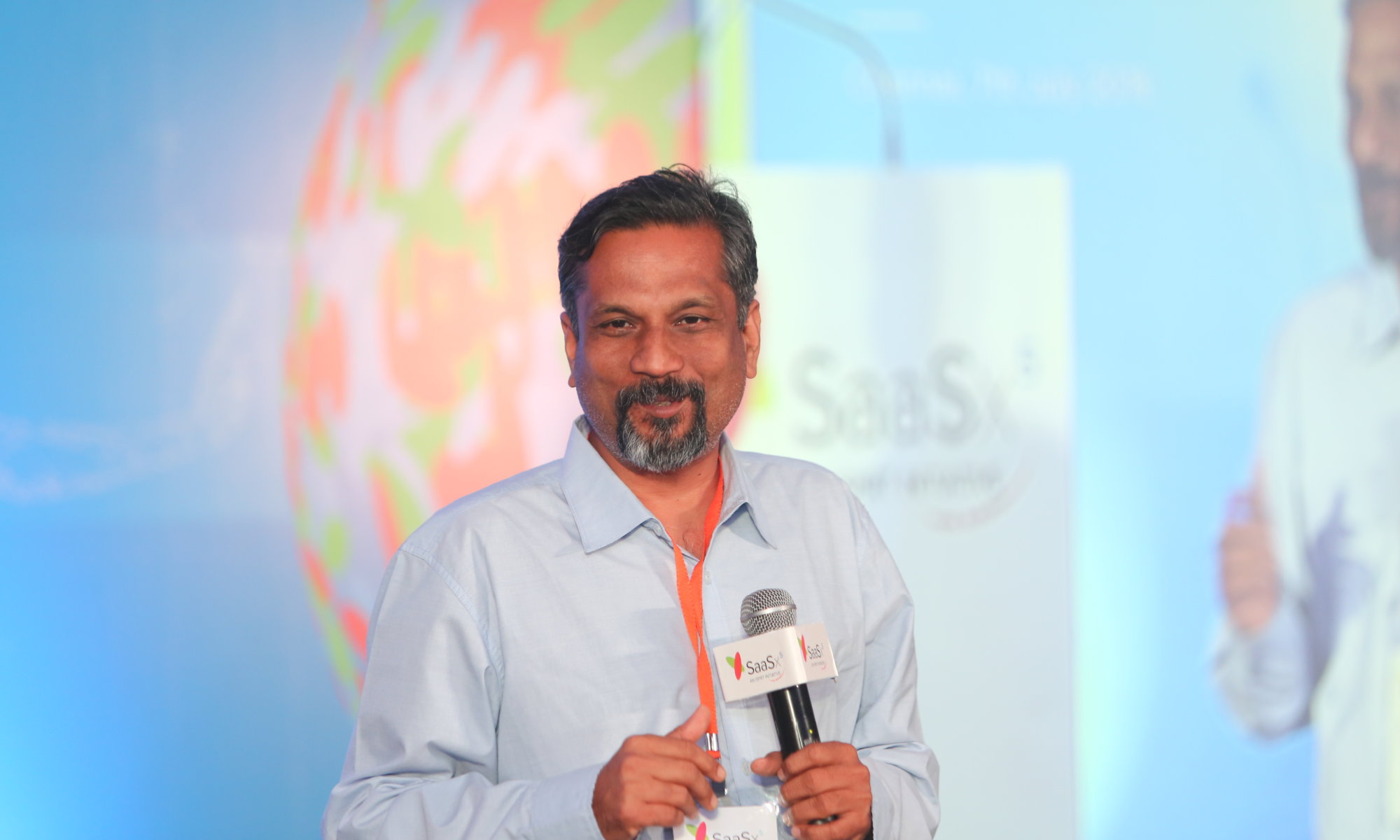Since SaaSx second edition, I have never missed a single edition of SaaSx. The 5th edition – SaaSx was recently held on the 7th of July, and the learnings and experiences were much different from the previous three that I had attended.
One primary topic this year was bootstrapping, and none other than Sridhar Vembu, the CEO and Founder of Zoho, was presenting. The session was extremely relevant and impactful, more so for us because we too are a bootstrapped organisation. Every two months of our 4.5 year-long bootstrapped journey, we have questioned ourselves on whether we have even got it right! If we should go ahead and raise funds. Sridhar’s session genuinely helped us know and understand our answers.
However, as I delved deeper, I realised that the bigger picture that Sridhar was making us aware of was the entrepreneurial journey of self-discovery. His session was an earnest attempt to promote deep thinking and self-reflection amongst all of us. He questioned basic assumptions and systematically dismantled the traditional notions around entrepreneurship. Using Zoho as an example, he showed how thinking from first principles helped them become successful as a global SaaS leader.

What is it that drives an entrepreneur? Is it the pursuit of materialistic goals or the passion to achieve a bigger purpose? The first step is to have this clarity in mind, as this can be critical in defining the direction your business would take. Through these questions, Sridhar showed that business decisions are not just driven by external factors but by internal as well.
For example, why should you chase high growth numbers? As per him, the first step to bootstrapping is survival. The top 5 goals for any startup should be Survive, Survive, Survive, Survive, Survive. Survival is enough. Keep your costs low and make sure all your bills are paid on time. Cut your burn rate to the lowest. Zoho created 3 lines of business. The current SaaS software is their 3rd. They created these lines during their journey of survival and making ends meet.

Why go after a hot segment (with immense competition) instead of a niche one? If it’s hot, avoid it i.e. if a market segment is hot or expected to be hot, it will be heavily funded. It will most likely be difficult to compete as a bootstrapped organisation and is henceforth avoidable. Zoho released Zoho docs in 2007, but soon as he realized that Google and Microsoft had entered the space, he reoriented the vision of Zoho to stay focused on business productivity applications. Zoho docs continues to add value to Zoho One, but the prime focus is on Applications from HR, Finance, Support, Sales & Marketing and Project Management. Bootstrapping works best if you find a niche, but not so small that it hardly exists. You will hardly have cut throat competition in the niche market and will be able to compete even without heavy funding.
Most SaaS companies raise funds for customer acquisition. Even as a bootstrapped company customer acquisition is important. As you don’t have the money, you will need to optimise your marketing spend. Try and find a cheaper channel first and use these as your primary channel of acquisition. Once you have revenue from the these channels, you can start investing in the more expensive one. By this time you will also have data on your life time value and will be able to take better decisions.
Similarly, why base yourself out of a tier 1 city instead of tier 2 cities (with talent abound)? You don’t need to be in a Bangalore, Pune, or a Mumbai to build a successful product. According to Sridhar, if he wanted to start again, he would go to a smaller city like Raipur. Being in an expensive location will ends up burning your ‘meager monies’ faster. This doesn’t mean that being in the top IT cities of India is bad for your business, but if your team is located in one of the smaller cities, do not worry. You can still make it your competitive advantage.

Self-discipline is of utmost importance for a bootstrapped company. In fact, to bootstrap successfully, you need to ensure self-discipline in spends, team management, customer follow-ups, etc. While bootstrapping can demand frugality and self-discipline, the supply of money from your VC has the potential to destroy the most staunchly disciplined entrepreneurs as well. Watch out!
And last but not the least – It takes time to build something successful. It took Zoho 20 years to make it look like an overnight success.
This blog is authored by Ankit Dudhwewala, Founder – CallHippo, AppItSimple Infotek, Software Suggest. Thanks to Anukriti Chaudhari and Ritika Singh from iSPIRT to craft the article.


